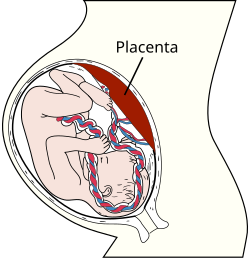
Placenta
The placenta is a temporary embryonic and later fetal organ that begins developing from the blastocyst shortly after implantation.

The placenta is a temporary embryonic and later fetal organ that begins developing from the blastocyst shortly after implantation.